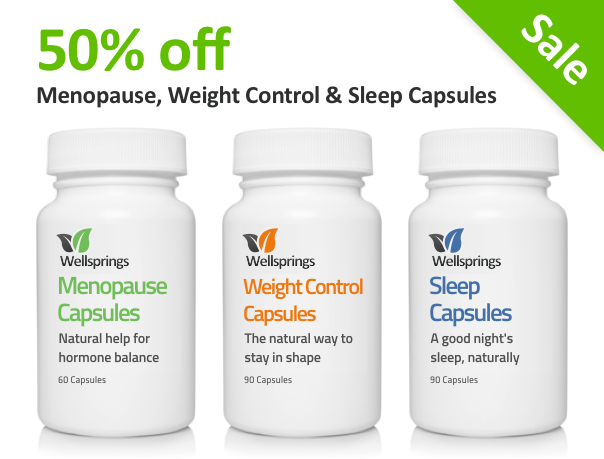Does IBS Get Worse At Menopause?
Dropping hormone levels at menopause affect your whole digestive system, and can worsen or trigger IBS symptoms. Here are 10 simple ways to help yourself.
April is IBS Awareness Month and for many women it can also see an increase at menopause, or greater effect on symptoms if you are already a sufferer. IBS is common with an estimated 9-23% of people worldwide, and in the UK that is a staggering 6 million sufferers.
What is IBS?
Irritable Bowel Syndrome sufferers regularly experience symptoms such as stomach pain, bloating, constipation, diarrhoea and vomiting. Irritable bowel syndrome is common in both menopausal and perimenopausal woman but generally by the age of 65 IBS is experienced at equal rates in men and women.
Symptoms do not have any certain cure, so the condition can also be accompanied by feelings of fatigue, anxiety and even depression over the inability to control, or eradicate the symptoms.
Unfortunately many of the signs of IBS are commonly experienced either as part of the menstrual cycle, or stomach and digestive upsets so IBS can remain undiagnosed so you may be unaware that your symptoms indicate a medically recognized disorder.
Why menopause affects IBS
As the levels of progesterone and oestrogen start to decline the well-established relationship between these sex hormones and digestive symptoms are affected. The receptor cells for these hormones are located throughout the digestive tract and so the changing hormonal levels of menopause do have an effect on IBS as its symptoms primarily relate to our digestive and elimination systems.
The lack of the production of the hormones oestrogen and progesterone is what can cause digestive issues to begin occurring during menopause.
10 things you can do to help symptoms
As IBS can be so varied in its symptoms, and these are very common, it is important to establish if you really do have IBS with your doctor to see if there is another underlying cause other than menopause. If it is IBS then these simple steps may help:
1. At menopause hormone balance is critical to keep hormones healthy so check you do not have any signs of oestrogen dominance.
2. The simplest way to begin treating IBS, whether due to menopause or any other condition, is by taking care of your diet. Certain foods can increase the symptoms while other foods will reduce the IBS.
3. Avoid over stimulating the digestive tract by staying away from triggers such as caffeine based products like tea, coffee and certain carbonated drinks. Caffeine is a diuretic and will disturb the normal functioning of the bowel.
4. Bloating is something to watch out for: this can be caused by oestrogen dominance but can also be food related. Be aware of bloating that occurs after eating any specific foods and try to eliminate these from your diet. Foods that ‘bloat’ include green peppers, cabbage and many types of bean as these create gas in the digestive tract and should be avoided.
5. At peri/menopause you can start to have signs of lactose intolerance so try eliminating all dairy foods from a week or so to if this makes a difference.
6. Dairy products should also be eliminated from your diet. Even though you may never have suffered from lactose intolerance, you may begin to see some signs during perimenopause as well as menopause.
7. The one exception to the no-dairy rule is live natural yogurt containing live and active cultures. These cultures help break down other foods in the stomach and bowel, but please don’t go for ones with sugar, or sweeteners, as they won’t help.
8. Fibre is also important as it keeps the digestive tract clean and clear and assists in normal bowel function. You will get that from wholegrain breads, fruit and vegetables.
9. Unlike fibre, gluten is best limited as it is associated with causing IBS and is present in all wheat based products such as flour, bread, and pasta. There are now plenty of gluten free products and alternatives made from rice, soy, or corn.
10. Alternative medicine can offer help in the form of acupuncture and counselling, but you may also find peppermint oil capsules to be effective and the taking of probiotics is found useful by many.
Helpful information:
As well as hormone balance, one key factor in IBS is stress so anything you can do to reduce your stress levels will also be important in reducing your IBS symptoms.
As well as diet, emotional health will affect your IBS so counselling, meditation, hypnotherapy and practices such as tai chi have all been found helpful by many sufferers. It may be a case of trial and error to see what best suits you, but taking control of the condition for yourself is a good first step to relieving symptoms. In particular taking action is important in relieving the stress and anxiety that can trigger or worsen IBS symptoms.

















